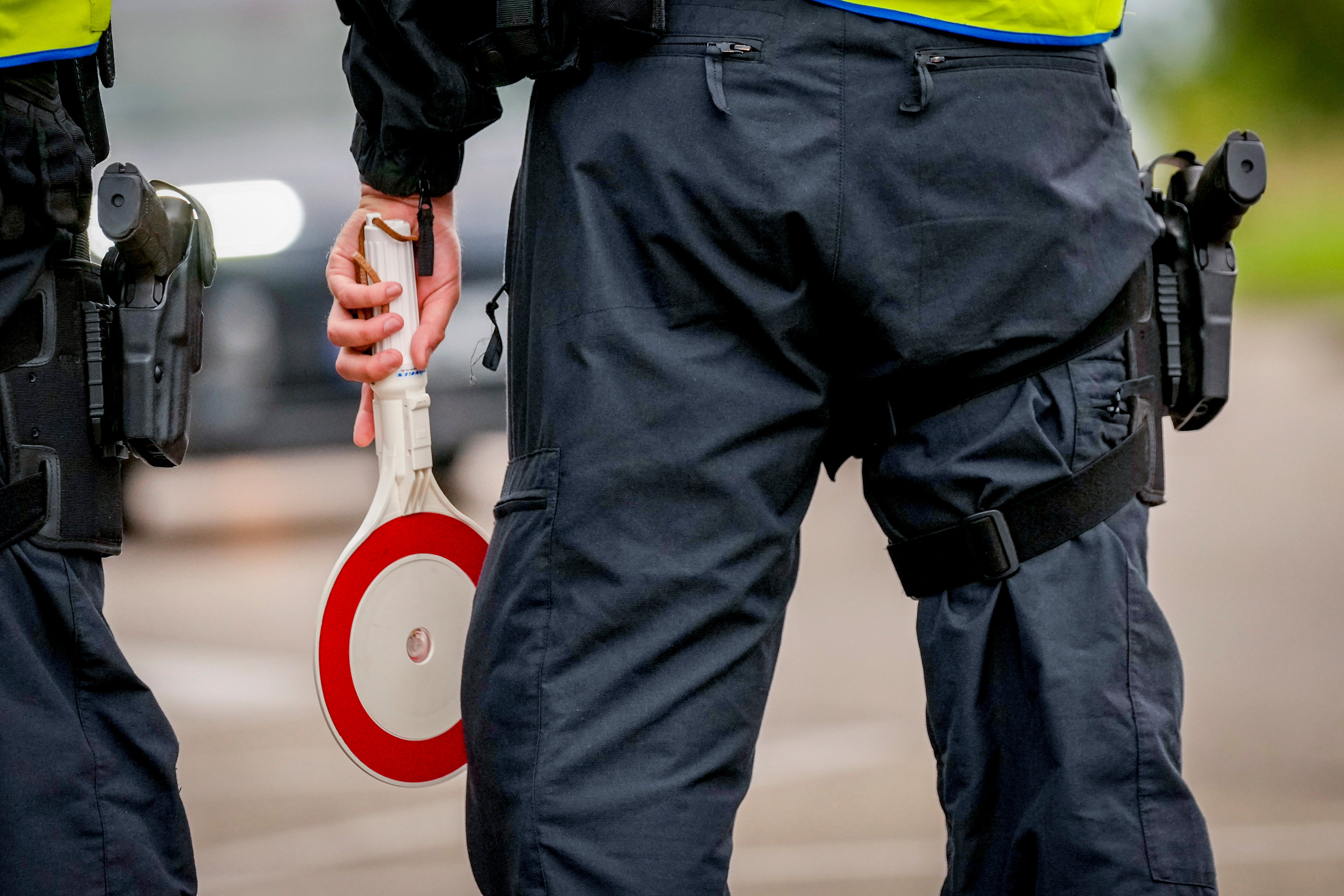Germany reintroduces border controls to tackle migration – to the delight of far right
Interior minister Nancy Faeser says the aim is to ‘protect against acute dangers’ – but some of the country’s neighbours are not happy

Your support helps us to tell the story
From reproductive rights to climate change to Big Tech, The Independent is on the ground when the story is developing. Whether it's investigating the financials of Elon Musk's pro-Trump PAC or producing our latest documentary, 'The A Word', which shines a light on the American women fighting for reproductive rights, we know how important it is to parse out the facts from the messaging.
At such a critical moment in US history, we need reporters on the ground. Your donation allows us to keep sending journalists to speak to both sides of the story.
The Independent is trusted by Americans across the entire political spectrum. And unlike many other quality news outlets, we choose not to lock Americans out of our reporting and analysis with paywalls. We believe quality journalism should be available to everyone, paid for by those who can afford it.
Your support makes all the difference.Germany has reintroduced checks on all nine of its land borders in a move that has angered a number of its neighbours – but brought praise from the far right.
The new restrictions came into force on Monday in the wake of a string of deadly knife attacks in which the suspects were asylum seekers, and after the anti-immigration Alternative for Germany (AfD) made big gains in local elections.
The aim, according to interior minister Nancy Faeser, is to curb migration and “protect against the acute dangers posed by Islamist terrorism and serious crime”. However, critics suggest it will damage the economic asset that is the free-movement Schengen zone, which includes 25 EU nations plus four others including Switzerland and Norway.
Germany, the EU’s largest country, is located in the heart of Europe and borders more countries than any other EU member.
Temporary checks are permitted in certain circumstances, such as threats to internal security. Restrictions were already in place at Germany’s eastern and southern borders with Poland, the Czech Republic, Switzerland and Austria, and they will now also apply for around six months at the borders with France, Belgium, the Netherlands, Luxembourg and Denmark.
With asylum applications in Germany declining, the government argues the move is necessary for security, but leaders of neighbouring countries, including Poland’s prime minister Donald Tusk and Austria’s chancellor Karl Nehammer, have voiced strong opposition. They fear having to absorb more asylum seekers, as well as having concerns about the impact on trade.
The far right has praised the news as a win. Geert Wilders of the Dutch Freedom Party (PVV) said Berlin’s decision was a “great idea”, and Marine Le Pen of France’s National Rally said: “Now Germany is doing it, when will France follow?”

The passport-free Schengen zone allows 420 million people to travel freely across the continent without border controls or customs checks.
Mr Tusk denounced the temporary controls as “unacceptable” while Greece’s prime minister, Kyriakos Mitsotakis, said the move would “hurt one of the fundamental achievements of the EU”. Mr Nehammer warned that if Germany introduced measures to send more immigrants back across their shared border, Austria would respond by sending more people eastward towards the Balkans.
German police say the expanded checks already pose a major challenge to them.
Andreas Rosskopf, the head of Germany’s Federal Police Union, said anyone crossing the border into Germany should now expect to be checked. But he also acknowledged that, given the length of the country’s borders, police realistically will not be able to stop and check every vehicle.
Mr Rosskopf noted that Germany’s western border is 870 miles (1,400km) long, in addition to the 1,490 miles (2,400km) that comprise its eastern and southern borders, where the checks are already taking place. He said in an interview on RBB24 Inforadio that “given the length of the border, permanent and intensive checks are not possible”.
Mr Rosskopf added that “it remains to be seen how successful it will be in curbing migration and people-smuggling”.
Germany’s government, led by chancellor Olaf Scholz, has received criticism for not doing enough to tackle uncontrolled migration.
Last month, a knife attack in North Rhine-Westphalia, in which three people were killed, was blamed on a Syrian asylum seeker who claimed to be inspired by Isis. In June, a knife attack attributed to an Afghan immigrant left a police officer dead and four other people wounded.
Since the stabbing, Mr Scholz’s government has changed the rules so that asylum seekers facing deportation will lose benefits, and resumed the deportation of convicted Afghan criminals to their home country for the first time since the Taliban returned to power in 2021.
The changes come against a backdrop of declining asylum applications to Germany, their having fallen by 21.7 per cent in the first eight months of the year.
Ms Faeser said the fall was thanks in part to controls introduced last year, which blocked more than 30,000 unauthorised entries.
“That is why we will expand our temporary border control to include all of Germany’s land borders, as I ordered today,” she said in a statement. “My order is also intended to protect against the acute threat of Islamist extremist terrorism and serious cross-border crime,” she added.
Reuters and Associated Press contributed to this report
Join our commenting forum
Join thought-provoking conversations, follow other Independent readers and see their replies
Comments